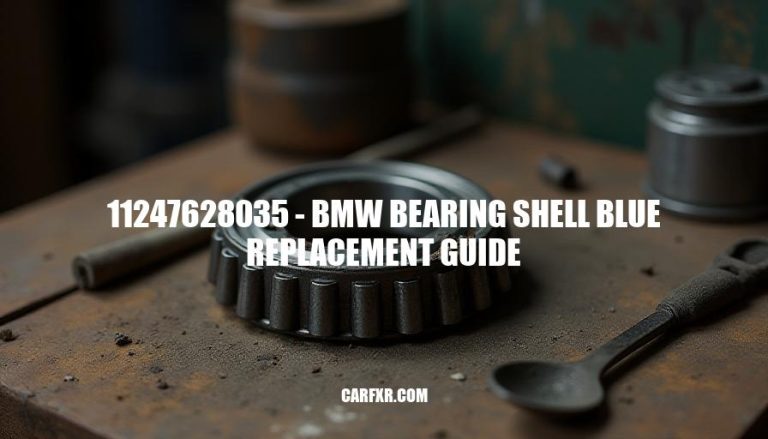
The BMW Part Bearing Shell, Blue 11247628035 is an important part that helps keep your engine running smoothly. It’s designed to reduce friction between the crankshaft and connecting rods, which keeps your engine healthy and long-lasting.
The BMW Part bearing shell, blue 11247628035, is a genuine BMW component designed for specific BMW engines. Here are the detailed features and technical specifications:
The bearing shell is made from high-quality aluminum alloy. This material is chosen for its excellent thermal conductivity, lightweight properties, and resistance to wear and corrosion.
The bearing shell features a blue color code, which indicates its specific size and application.
It is designed to fit the connecting rod bearing cap and is color-coded to match the crankshaft and connecting rod sizes. The standard size for this bearing shell is 50.0mm inside diameter.
The bearing shell undergoes a rigorous manufacturing process that includes precision machining and heat treatment. The aluminum alloy is machined to exact specifications to ensure a perfect fit within the engine.
The heat treatment process enhances the material’s strength and durability, ensuring long-lasting performance.
The use of high-quality aluminum alloy ensures that the bearing shell can withstand high temperatures and pressures, which are common in engine operation. The precision machining and heat treatment processes contribute to the bearing shell’s ability to maintain its shape and integrity over time, reducing the risk of engine failure. The color-coding system helps ensure that the correct bearing shell is used for each specific engine application, further enhancing performance and reliability.
These aspects collectively contribute to the bearing shell’s ability to provide reliable performance and longevity in BMW engines.
The BMW Part Bearing Shell, Blue 11247628035 is a crucial component that plays a vital role in maintaining the health and longevity of BMW engines.


